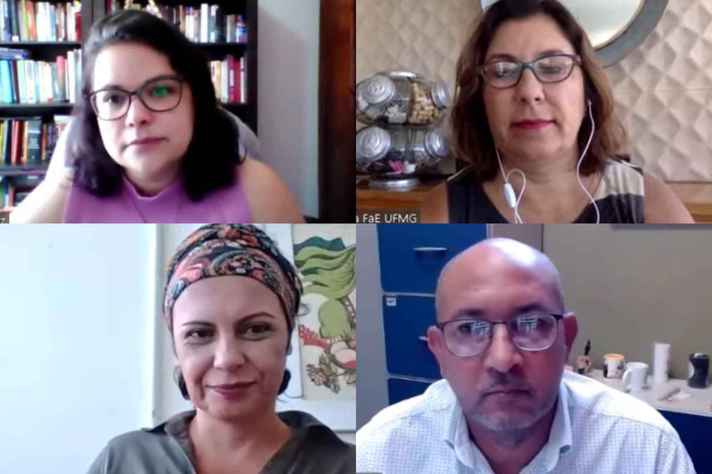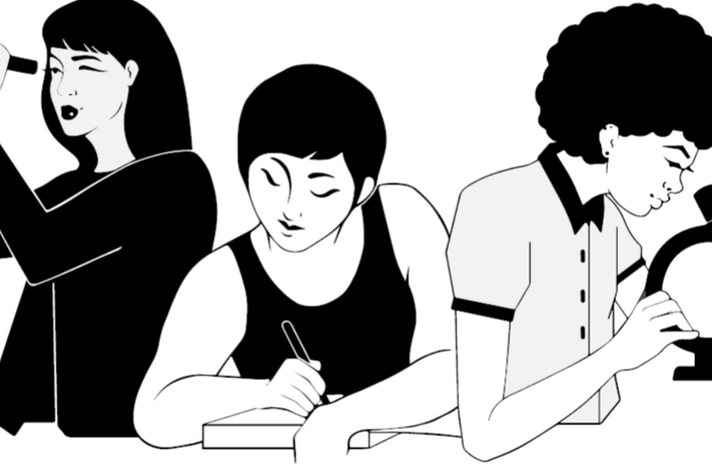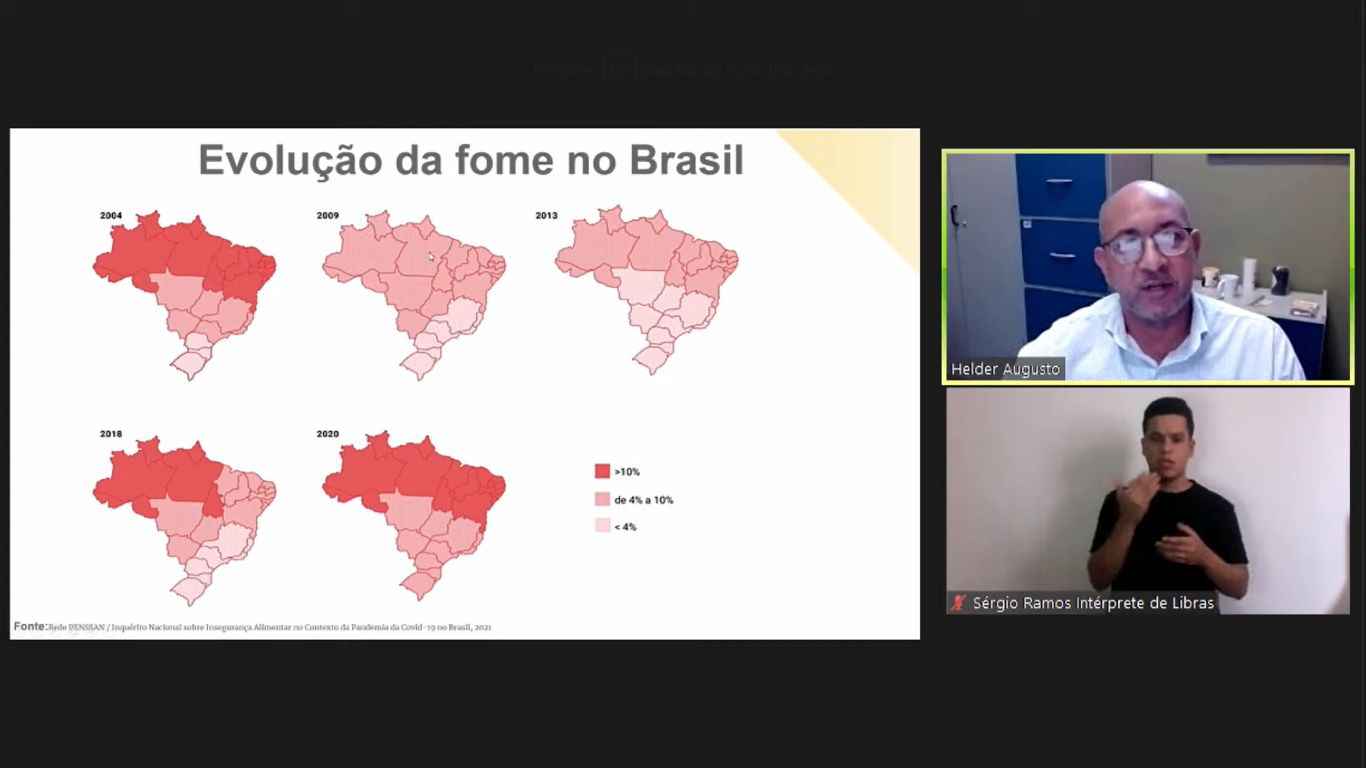
This Thursday, October 28, Round Table sustainable development challenges She discussed the importance of women’s participation in science, gender equality, and measures to achieve sustainable agriculture and food security. Topics are covered by two (2 and 5) of the Sustainable Development Goals (SDGs) developed by UNESCO.
Dialogue mediated by the professor at the Faculty of Economics (VIS) Sybil Cornelius Deniseteacher met In the name of Betseida, from the College of Education (FaE), Dean of Counseling and Professor in the Department of Psychology at UFMG, Picture of Claudia Mayorgaand the teacher Helder dos Anjos Augusto, from the Institute of Agricultural Sciences (ICA).
Due to the permanent exclusion of women from scientific and technological fields, Bétseida stressed the importance of girls’ education. “Investment, mainly in the sciences, benefits the economy, and thus the skilled workforce. It also helps in creating job opportunities, stabilizing society and organizing family.
The professor emphasized that there are still few policies aimed at gender equality in the scientific field. Although they are responsible for producing a large portion of the research — about 70%, according to National Sample Household Survey (PNAD) data — women face some hurdles in academia, particularly in the fields of science, technology, engineering and mathematics. “In these areas, gender segregation is still evident, with a majority in the presence of males. In addition, women, who are brought into this context, are underrepresented in senior management positions and suffer from gender stereotypes,” she explains.
The professor at Betseida School of Education highlighted that challenges exist in both the institutional environment and the external environment. “The first challenge is undoubtedly the unequal distribution of domestic work. Women are still burdened with the care of children, the elderly and aspects of family life.” Also, according to the teacher, this factor is linked to other problems, such as low self-esteem and leadership training, in which women are constantly discouraged from taking on positions that make it difficult to balance work and domestic activities.
She emphasized that improving the quality of basic education and changing the social perspective are essential to reverse this situation. He added: “Empowering children, especially girls, is essential for training critical people. Pedagogical actions to promote science and scientific thinking are of a closely related nature, as it is precisely policy actions that undermine the pillars of macro-policy.”

base indicator
Addressing the same topic, the Dean of Counseling, Claudia Mayorga, member of the Human Rights Committee of the Federal Council of Psychology, highlighted the challenges to achieving gender equality. “The status of women in the world is a key indicator for thinking about sustainable development, democracy and social justice,” she said.
The teacher emphasized that the roles that women have historically occupied, although not recognized, are essential to the well-being of societies. She explained, “Women learn, are connected to care policies, and take responsibility for basic procedures and activities to preserve life.”
However, according to Mayorga, it has become invisible, especially in the oceanic context and in the countryside. The experiences of women, particularly in Brazil and elsewhere in Latin America – taking into account patriarchal, colonial and conservative culture – make significant contributions to maintaining and reflecting sustainable development. She emphasized that “it is necessary to put a gender and diversity perspective, to see in the perspective and eyes of these people, to understand who these women are and how they are.”
Gender-based violence, in particular sexual violence, femicide and human trafficking, must be vigorously combated. Mayorga stated that political actions should operate not only in the public sphere, but also in the private sphere. She stressed that “feminist studies have broken the barriers that put the political dimension only related to the context of life and public institutions.”
According to the professor, the academic environment contributes in various ways to education for gender equality and thus plays an essential role. “Internal and external communities need elaboration. I concluded that activities related to research, extension and management help with the demands of the gender agenda, working in favor of public policies and dialogue with various social movements.”
Hunger returns to the table of the Brazilian national team
Professor Helder dos Anjos Augusto, of the International Institute of Medicine, addressed the challenges of achieving food security. “The debate about hunger involves ensuring access to quality food. This condition is essential when considering the creation of a more just and balanced future for its population.
The researcher referred to the historical achievement that Brazil witnessed, when the United Nations removed the country from the map of hunger, in 2014. He stated that social programs such as Bolsa Família (2003-2010) and Brasil sem Miséria (2011-2014), were means of promoting the human right to Adequate and healthy food.
Also, according to the professor, food guarantees based on support policies for small and medium-sized farmers, and measures associated with the formation of stocks, in order to prevent a significant rise in prices, contributed to the realization of the commitments made in the goals. Sustainable Development (ODS), from UNESCO.
However, Helder Araujo regretted it after more than a decade
From implementing, monitoring and improving public policies in favor of food security, Brazil is experiencing a moment of decline. Over the past five years, the country has been advancing in poverty rates. In 2020, food insecurity and hunger have returned to levels close to 2004.”

The professor stated that massive investment in sustainable agriculture is one possible solution to the problem, as it will enhance productivity advancement in the food sector. He explained that “the decentralization of land and the access of rural people to policies that contribute to their production process are alternatives to combating the growth of hunger.”
